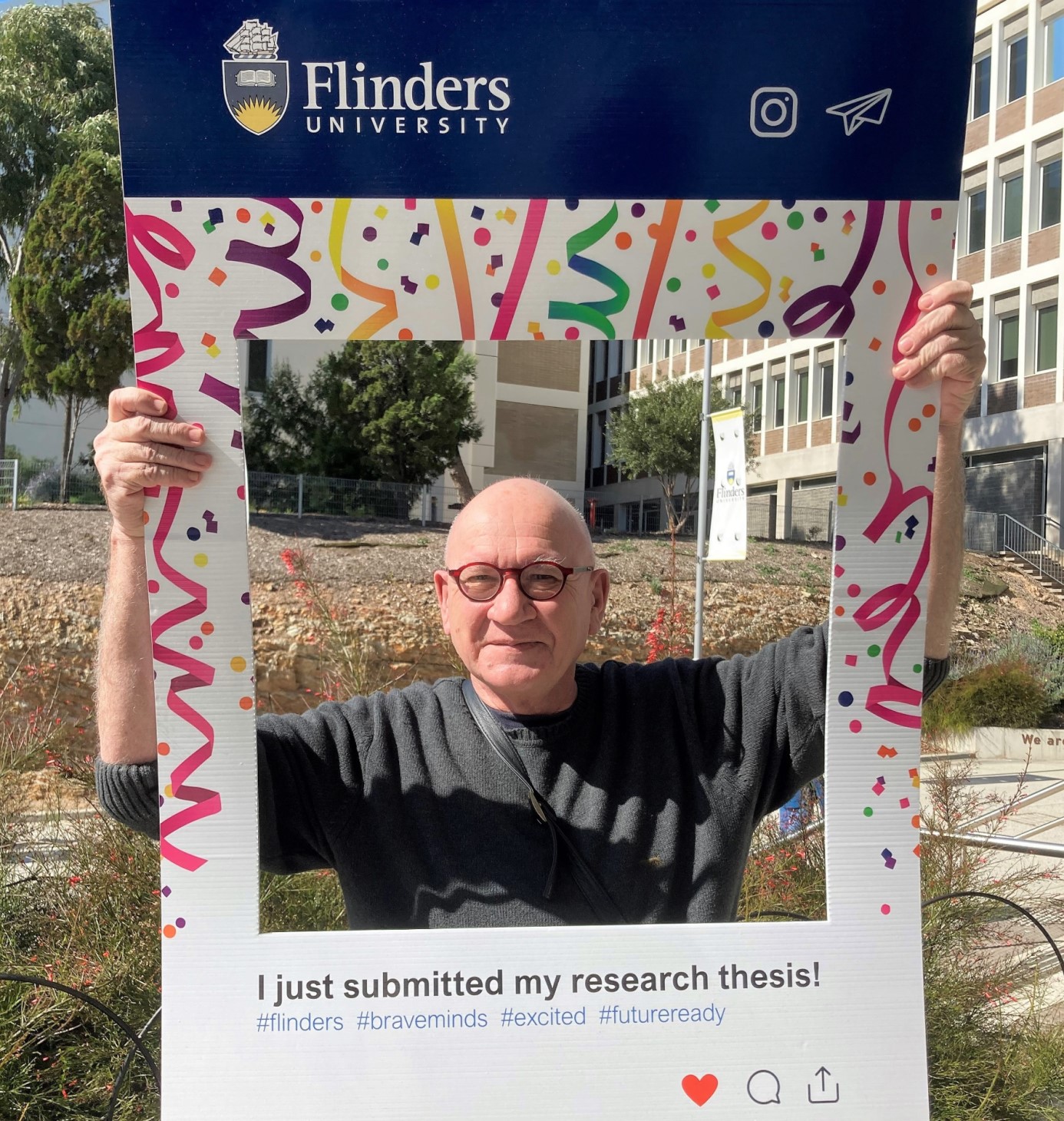
When I submitted my PhD thesis in late August, the Office of Graduate Research asked me to provide some reflections on my research journey. These may be helpful to current and prospective HDR students.
I started my undergraduate degree in social work at the age of 17. I had no idea then that I would go on to complete three more degrees and ultimately work in academia. I would like to share aspects of my journey with you, to encourage you to achieve your aspirations. Here are a few of my thoughts.
Do not dismiss your life experiences
Many of us have worked in so-called menial jobs in retail, hospitality, health and social care etc. We have gone on to perform professional roles. Don’t underestimate how much you will learn from your customers or clients, and how this will improve your knowledge and practice.
Take notice of what these interactions teach you. They will contribute a lot to the development of your research project. Similarly, you will learn much from your own and your colleagues lived experience.
Your HDR project
Whatever your project, it is most important that you believe that it will contribute to knowledge and social benefit. If you haven’t sorted this argument, then take time out to do so.
If you are studying or working in health or human services, pay particular attention to your work with people and the environment and context that they live in. Beware of conducting any research with any group of people that assumes that they can be categorised into a homogenous group based on race, culture or identity.
Things will evolve in your journey
Everyone beginning their HDR journey will have an idea of the question they want to answer or the argument they wish to advance. Challenges will emerge along the way, for example where theories and methodologies may be considered, but then abandoned as not fit for purpose. This is normal In the course of research. As you persist with your investigation the methods and structure will almost certainly reveal themselves.
Be bold and speak out
Throughout my working life, I have observed the importance of how language is used to constrain debate. For example, income support provided by the social security system has become described as welfare. This has evolved from an entitlement for citizens, into conditional support. Recipients of payments such as JobSeeker Allowance, Parenting Payment and Disability Support Pension are defined and portrayed as mendicants. Their participation in and for the benefit of society, is thus diminished.
Please consider how you use language, and be aware of how terms such as ‘welfare’ can carry a useless baggage of meaning. In the course of your independent research, it is important to describe and define your words and their meanings on your terms. These will be a foundation for the focus and structure of your thesis. Do not be afraid to be argumentative, even when you are at odds with current dominant ideologies.

